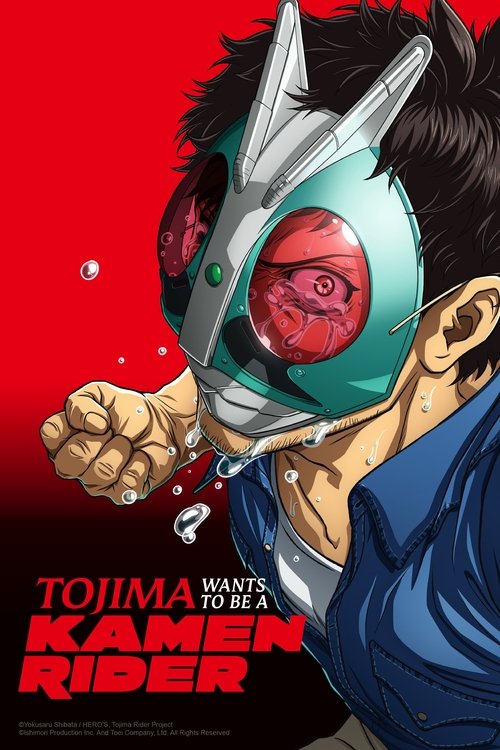
Ask Your Own Question
What is the plot?
Sorry, we aren't able to watch and write up a full detailed plot yet. Check back in a few days.
Related Titles
Browse All Titles →
What is the ending?
In episode 81 of Anpan, Nobu tells Takashi that she wants to go to Tokyo someday and leaves her job at Kochi Shimpo, setting out on her own path.
The episode opens inside the Kochi Shimpo office, where Nobu sits at her desk, papers scattered before her. The atmosphere is quiet, the usual bustle of the newsroom subdued. Nobu stares out the window, her expression thoughtful, almost distant. She gathers her belongings, folds her apron neatly, and walks to the editor's desk. With a calm voice, she hands in her resignation, explaining that she feels it is time to move forward, that she wants to see what lies beyond Kochi. The editor listens, nods, and wishes her well, though there is a hint of surprise in his eyes.
Later that day, Nobu meets Takashi at their usual spot near the riverbank. The sun is low, casting long shadows across the water. Nobu tells Takashi about her decision, her voice steady but tinged with nervousness. She says she wants to go to Tokyo someday, that she feels she needs to find her own way, to see what she can do on her own. Takashi listens quietly, his face unreadable. He does not try to stop her, nor does he offer to go with her. Instead, he simply nods and says he understands. There is a pause, a moment of silence between them, filled with unspoken words.
Nobu then walks away, her steps firm, her back straight. Takashi watches her go, his hands in his pockets, his expression a mix of pride and sadness. The camera lingers on him as he stands alone by the river, the sound of the water flowing softly in the background.
The episode ends with Nobu boarding a train, her suitcase at her feet. She looks out the window as the train pulls away from the station, the landscape blurring past her. Takashi remains behind, standing on the platform, watching until the train disappears into the distance.
At the close of episode 81, Nobu has left her job and set out on her own journey, while Takashi stays behind, supporting her decision. The episode does not show what happens next for either character, but it marks a turning point in their lives, a moment of separation and growth. The story emphasizes Nobu's desire for independence and her willingness to take risks, while Takashi's quiet support shows his respect for her choices. The conflict between staying in a familiar place and pursuing new opportunities is central to the episode, and both characters face it with courage and resolve.
Is there a post-credit scene?
I cannot provide information about Episode 81 of Anpan Season 1. The search results do not contain specific details about Episode 81's content or whether it includes a post-credit scene. The search results primarily focus on the series finale (Episode 130) and general information about the Anpan drama series, but they do not include plot details or scene descriptions for Episode 81 specifically.
To get accurate information about Episode 81, you would need to watch the episode directly or find sources that specifically cover that individual episode's content.
What is the significance of the red handbag that Takashi carries to the Wakamatsu house in Episode 81?
In Episode 81 of Anpan, Takashi runs to the Wakamatsu house carrying a red handbag that Nobu had refused to accept earlier. This handbag symbolizes a key emotional or narrative element, as Takashi's effort to deliver it despite Nobu's refusal highlights a moment of tension or unresolved issues between the characters.
Why does Nobu decide to leave Kochi Shimpo and express a desire to go to Tokyo in Episode 81?
Nobu tells Takashi that he wants to go to Tokyo someday and then leaves Kochi Shimpo, indicating a significant turning point in his character arc. This decision reflects Nobu's personal aspirations or a need for change, which impacts the storyline by introducing new directions for his character.
How does Takashi's relationship with Nobu evolve in Episode 81?
In Episode 81, Takashi's actions, such as carrying the red handbag to Nobu and responding to Nobu's departure plans, show a complex relationship marked by care, conflict, and emotional depth. Takashi's persistence despite Nobu's refusals suggests a dynamic of support and unresolved feelings between them.
What emotional states do Takashi and Nobu experience during the events of Episode 81?
Takashi appears determined and possibly anxious as he rushes to deliver the red handbag, while Nobu seems conflicted, expressing a desire to leave and pursue a new life in Tokyo. These emotional states underscore themes of longing, change, and interpersonal tension within the episode.
Are there any notable secondary characters or settings introduced or emphasized in Episode 81?
Hatako is mentioned as greeting Takashi at the Wakamatsu house, indicating her role in the episode's setting and possibly in the interpersonal dynamics. The Wakamatsu house itself serves as a significant location where key interactions occur, grounding the episode's emotional and narrative developments.
Is this family friendly?
The TV show "Anpan," season 1 episode 81 (2025), is generally family friendly and suitable for children, as it is a morning drama inspired by the life of the creator of the beloved children's character Anpanman and his wife. The show is a drama with a focus on love, courage, and life joy, rather than intense or graphic content.
Potentially objectionable or upsetting aspects for children or sensitive viewers are minimal. The show is not a cartoon but a live-action drama, so it may contain some emotional or dramatic scenes typical of human life stories, such as illness, loss, or hardship, but nothing extreme or inappropriate for family viewing has been reported. The original Anpanman character, which the show is based on, is very child-friendly, featuring a superhero with a bread head and a germ villain, designed for preschool audiences without scary elements.
In summary, "Anpan" episode 81 is suitable for family viewing with no known scenes that are objectionable or upsetting for children or sensitive viewers, though it may include some mild dramatic moments consistent with a biographical drama.


































